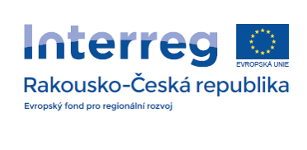 <<<
<<<
Open PhD positions in INSB, please click here
The Institute of Nanobiology and Structural Biology offers several open PhD positions in collaboration with the Faculty of Sciences at the University of South Bohemia. The regular duration of PhD studies at INSB is 4 years, including a two month research stay abroad. The student is awarded a stipend that covers all expenses for a maximum duration of four years. Social and health insurance for this time is covered by INSB. Student housing on campus is available.
Projects with open positions in the academic year 2012/2013 are:
__________________________________________________________________
Computational tools in the study of biomolecules
supervisor: Dr. David Reha, PhD.
Background
Computational methods are important tools in study of biomolecules including their interactions with other molecules (pharmaceutical drugs) and bimolecular processes. Within our project we would like to focus on very accurate description of the active site of the proteins and their interactions with ligands, substrates or protein co-factors. We would also like to describe the mechanisms of enzymatic reactions and electronic properties of reactive sites of the proteins. Such a level of accuracy can be only achieved by methods of quantum mechanics (QM). Since QM calculations are computationally very demanding and the description of the large biomolecules by purely QM methods is very limiting, hybrid QM/MM methods would be employed. QM/MM methods combine QM for calculations of active site and method of molecular mechanics (MM) for the calculation of the rest of the system. The classical MM simulation will be applied for the dynamics of the large protein and study of interfaces between proteins and other biomolecules (other proteins, DNA). We would also employ methods of molecular docking in order to predict the geometry of various ligands in binding sites of the proteins. Particular interest will be also paid on the accurate description of the electrostatic interactions within the biomolecules including polarization and implementation of the polarization to the computational schemes (polarized molecular docking).
Requirements
An applicant must hold MSc in a relevant field, (Chemistry, Physics, Biology)
An applicant must have the basic IT skills (knowledge of Unix/Linux is an advantage).
An applicant with experience in computational chemistry will be preferred.)
Please send your inquiries or your application including motivation letter and full CV to: reha@nh.cas.cz
________________________________________________________________
Department of Cell Biology
supervisor: Dr. Josef Lazara, PhD.
1) Mechanisms of G-protein signaling
The goal of the project is to elucidate molecular mechanisms of G-protein signaling in living cells. The goal will be accomplished by observing interactions among G-proteins and other proteins using advanced linear and non-linear optical microscopy techniques, particularly two-photon polarization microscopy (2PPM). The project will involve using techniques of molecular biology, mammalian cell culture, physiology and optical microscopy, optionally also including mathematical modeling and optical engineering.
2) Development of two-photon polarization microscopy (2PPM) into a protein structure method
The goal of the project is to establish the capability of 2PPM to determine the orientation of a fluorescent protein with respect to the cell membrane. This capability will then allow rational development of genetically encoded probes of various molecular processes taking place in living cells. A major part of the project will consist of studies of anisotropic optical properties of fluorescent proteins. Another part of the project will involve investigations of structural properties of various test constructs, in living cells. The project will employ techniques of protein crystallography, molecular biology, linear and non-linear optical microscopy, and also mathematical modeling.
Please send your inquiries or your application including motivation letter and full CV to: lazar@nh.cas.cz
________________________________________________________________
Structure and dynamics of biomolecules in non-aqueous ionic solutions
supervisor: Dr. Babak Minofar, PhD.
Background
Solvation in aqueous and non-aqueous solutions of biomolecules such as peptides, proteins and enzymes and charged molecules in general plays an important role in many areas of chemistry such as physical chemistry, solution chemistry, electrochemistry, biological chemistry and is a key issue in applied chemistry. A deeper understanding of the solvation phenomenon in complex systems, such as biologically relevant molecules in aqueous and non-aqueous solutions, hydration of ions in electrolyte solutions or ions in non-aqueous solutions is crucial.
The usage of organic solvent in many cases can improve the applications of enzymes by decreasing the association in aqueous solutions by increasing the solubility of hydrophobic substrates. Thus we would like to study both experimentally and theoretically the systematic activity screening of some biomolecules such as lysozyme, haloalkane dehalogenases in the presence of organic solvents in order to reveal their different activation and inhibition effects and crystal structures. Also by analyzing the molecular dynamics simulation data we revealed that organic solvent molecules we would like to study the structural changes of such biomioleculs in terms of structural and thermal stability and structure of the active sites of enzymes. As the properties of ionic liquid such as hydrophobilc and hydrophilic can be tuned by using different cations and anions for enzymatic catalysis thus suitable solutions for proteins crystallization and enzymatic reactions can be achieved Our computational approach is based on a combination of state-of-the-art molecular dynamics simulations and quantum chemistry calculations and for experimental part crystallization techniques will be used to understand the structural changes which happen in the process of solvation of biomolecules in non-aqueous media. This project aims to demonstrate and reveal solvation and dynamics of ions and biomolecules in non-aqueous solutions such as ionic liquids in order to understand and predict some properties which allow us to use such media as agents for crytalization of biomolecules and affect the enzymatic activities and structure of biomolecules in non-aqueous solutions. Understanding the solvation in non-aqueous media is crucial part of some technological processes such as modifications and improvements of the performance of lithium batteries and new insights for dissolution of natural biomoleculs for industrial applications and biological chemistry.
Requirements
An applicant must hold MSc in a relevant field, (Chemistry, Physics, Biology)
An applicant must have the basic IT skills (knowledge of Unix/Linux is an advantage).
An applicant with experience in computational chemistry will be preferred.)
Please send your inquiries or your application including motivation letter and full CV to: minofar@nh.cas.cz
________________________________________________________________
Department of Structure and Function of Proteins
supervisor:Assoc. Prof. Dr. Rudiger Ettrich, PhD.
1) Mechanism of Type I restriction-modification enzymes
Restriction-modification systems are multifunctional complexes acting as a “primary immunity system”, protecting prokaryotic cells again foreign DNA attacks. Type I restriction enzymes are ATP-dependent DNA translocases, able to translocate double-stranded DNA prior to restriction (DNA-cleavage). The goal of the proposed thesis would be to understand the communication and interplay between the various enzyme functions (Endonuclease, Translocase, Methylase) in these huge complexes on a molecular level, a possibility that opened up just recently with the publication of the full atomistic structure of the motor subunits (HsdR) in Nature Structural & Molecular Biology by our group in 2009. The proposed work will be experimental and complement theoretical ongoing work in the research team. The project will involve using techniques of molecular biology, general biochemistry, protein crystallography as well as in vitro and in vivo studies. This project is a joint research effort of the Ettrich group at INSB in Nove Hrady and the Weiserova group at the Institute of Microbiology of the Academy of Sciences in Prague, and therefore the student will work partially in Nove Hrady under the supervision of assoc. Prof. Rudiger Ettrich, PhD and in Prague under the co-supervision of Dr. Marie Weiserova, PhD.
Please send any questions to ettrich@nh.cas.cz and weisero@biomed.cas.cz
Please send your applications including motivation letter, detailed CV and references to ettrich@nh.cas.cz prior to your formal application.
2) Biochemical and structural insight into the functions of the E. coli protein WrbA
The E. coli protein WrbA is the founding member of a widespread and highly conserved family of proteins that are implicated in defense of cells against oxidative stresses. WrbA is structurally and functionally related to both bacterial FMN-dependent flavodoxins and eukaryotic FADdependent oxidoreductases. The structure of E. coli WrbA suggests new hypotheses about structural and functional evolutionary relationships within and between these two classes. The expected significance of the proposed work derives from its aim to create a comparative framework for understanding structure and function in these proteins. The aims are related to our long-term interests in the molecular origins of intramolecular structural organization, stability, and dynamics, and intermolecular affinity, specificity, and cooperativity. This project is in collaboration with Princeton University, with which we have two grants running on this theme, one is a research grant and the second an exchange grant, mainly enabling student exchange. If you will work on this project you are expected to closely collaborate with the Carey lab in Princeton (Prof. Jannette Carey is regularly visiting Nove Hrady, approximatly 2 month per year) and your studies will include regular visits in Princeton, too. The applicant should have solid knowledge in molecular biology and general biochemistry
Please send your inquiries or your application including motivation letter and full CV to: ettrich@nh.cas.cz
________________________________________________________________



